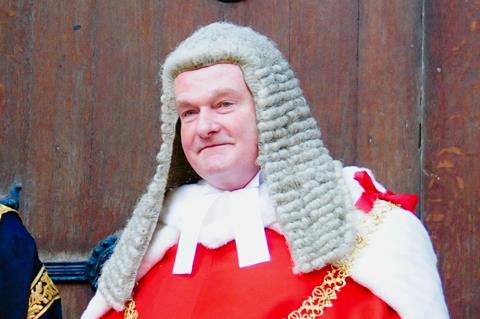The lord chief justice has reiterated the need for the lord chancellor to ‘rein in their colleagues who occasionally say things which sit uneasily with the rule of law or judicial independence’.
Lord Burnett said the lord chancellor must ‘bring to the cabinet table not only their political experience and judgment’ as justice secretary, but also ‘their enhanced duty with respect to the rule of law and judicial independence’.
He noted that the Constitutional Reform Act 2005 was ‘the first time in our history that the constitutional principle of judicial independence was explicitly referred to in statute’, but said the obligations it imposed on the lord chancellor simply reflected constitutional convention.
Burnett added: ‘In imposing an obligation on the lord chancellor to have regard to defending the independence of the judiciary he is required to be active in support of the judiciary, within government and, if necessary, in public when that independence is threatened or attacked.’

Speaking at the Hebrew University of Jerusalem last night, the lord chief justice emphasised ‘the role of the executive in supporting institutional independence’, saying: ‘Attacks on or a diminution in the institutional independence of the judiciary not only undermine the judiciary, but the rule of law itself.’
‘Executive support for the judiciary is not an optional extra within a democracy governed by the rule of law,’ he added. ‘It is a necessary means of securing it.’
Burnett also said the lord chancellor’s oath to defend the independence of the judiciary ‘entails a duty to engage publicly on behalf of the judiciary in the rare circumstances when public attacks are launched upon the judiciary as a whole or upon individual judges’.
‘It calls for lord chancellors to bring to the cabinet table not only their political experience and judgment as secretary of state for justice but also, as lord chancellor, their enhanced duty with respect to the rule of law and judicial independence,’ he concluded.
‘Like a trustee of an organisation or a non-executive director of a company, lord chancellors must be ready to deploy their authority and say “no” in circumstances where such a response may be unwelcome.
‘They must be able to rein in their colleagues who occasionally say things which sit uneasily with the rule of law or judicial independence. In these and many other ways, the lord chancellor remains the guardian of our institutional independence.’
This article is now closed for comment.



























15 Readers' comments